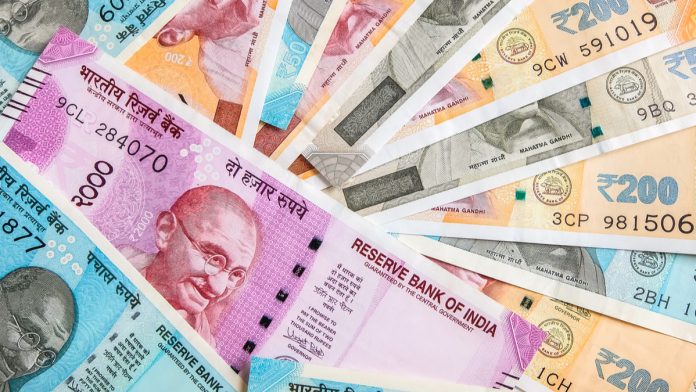- Indian Rupee (INR) falls after 3-days of gains
- Indian WPI inflation eases slightly
- US Dollar (USD) rises after three days of decline
- US retail sales slump -1.9%
The US Dollar Indian Rupee (USD/INR) exchange rate is moving higher on Friday, adding to gains from the previous session. The pair settled +0.24% on Thursday at 73.95. At 13:30 UTC, USD/INR trades +0.22% at 74.11.
Indian wholesale inflation eased slightly in December but remained in double digits for a ninth straight month. WPI rose 13.56% in December, down from 14.23% in November, which was the highest level in over a decade.
Rising input costs such as fuel, metals and chemicals have been responsible for lifting wholesale prices
Rising input costs and surging wholesale inflation is usually considered a lead indicator for consumer prices. The data suggests that consumer price inflation still has further to run. Indian retail inflation is currently 5%, still within the Reserve Bank of India’s 2%-6% target.
The RBI left the repo rate unchanged at 4% for a nineth consecutive meeting in the latest meeting, prioritizing economic growth.
The US Dollar is rising across the board. The US Dollar Index, which measures the greenback versus a basket of major currencies trades +0.2% at the time of writing at 94.67 after straight days of declines.
The US Dollar is heading higher after coming under pressure earlier in the week. The US Dollar which surged 6% in 2021, has fallen across the week even after US Federal Reserve Chair Jerome Powell said that the Fed could raise interest rates more if needed and after data revealed that inflation jumped to 7% in December a 40 year high.
Today, the risk off mood in the equities market is also helping drive flows into the US Dollar. US retail sales unexpectedly slumped in December, falling -1.9% month on month after rising 0.2% in November. The surge in Omicron cases kept shoppers at home whilst surging inflation squeezed real incomes. These factors are unlikely to change quickly, which doesn’t bode well for the outlook.





